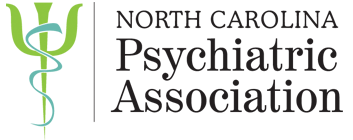Mental Health ParityThe Mental Health Parity and Addiction Equity Act of 2008 (MHPAEA) applies to large group employer plans of 50 of more employees, Medicaid managed care arrangements and nonfederal government plans that do not opt out. The ACA expanded MHPAEA to include almost all insurance products on the market. Patients need our help in dealing with possible parity issues and ensuring access to care. The following are ways you can help: Work with your patients to recognize potential parity violations. Here are some potential parity violations:
It can be difficult to demonstrate an actual parity violation, but there is no need for you to do the legal analysis. You should report any suspected violations to the enforcement authorities. Complain when your patients experience parity violationsOne of the most common things the APA has heard from regulatory authorities is that violations cannot exist because no one is complaining! Twenty states (including North Carolina) have been granted money by the federal government to enforce parity in the state. Regulators need to hear from you to know where to look for problems. You must not be silent. If you or your patients experience one of the issues above, go to this consumer portal, and complain. Help your patients ask for documents from their insurance plan when their care is deniedThe Substance Abuse and Mental Health Services Administration (SAMSHA) has recently issued a new consumer rights publication that specifies what documents patients are entitled to get from their plans when their MH/SUD care is denied. SAMSHA has made it clear that the patient is entitled to information both on the MH/SUD side of the plan and from the medical/surgical side of the plan to determine if MH/SUD is treated differently. These documents include: the plan’s medical necessity criteria, utilization review standards, and its analyses performed to verify whether the plan complies with MHPAEA. We suspect that many plans do not actually do the required analysis under MHPAEA and therefore cannot comply. SAMHSA’s Consumer Rights publication provides a wealth of information and patients need to take advantage of it. If you need assistance once a document request is made, please contact Maureen Bailey. Do not substitute a consumer complaint to enforcement authorities for an appealPatient have only a limited amount of time to appeal a denial of a claim. Filing a complaint with a regulatory agency is not a substitute for an appeal. Please help your patient appeal denials and be sure to include in the appeal that the action may violate MHPAEA. Also include a request for the documents in the SAMSHA publication above. Many denials are reversed on appeal, particularly when the appeal advances to the external stage and an independent third party. Don’t give up, when the patient’s claim is not appealed, the plan wins. Post the APA’s parity rights poster in your officeThis poster clearly and simply explains the parity law and the steps to take when a violation is suspected. Tell the NCPA and the APA about your experiencesAPA is in regular contact with state and federal authorities tasked with enforcing the parity laws and they need feedback about patients’ experiences getting MH/SUD care which may implicate the parity laws. If APA is able to collect sufficient data, APA can better relay to the authorities what is working and not working with parity enforcement. For patients, parity means reasonable access to care. For psychiatrists, it means the ability to practice medicine without unnecessary interference so that you can spend your time in patient care rather than intentional hurdles to block care. Psychiatrists have made substantial gains in making parity a reality, but it requires vigilance and your participation. Keep up the good work! |
